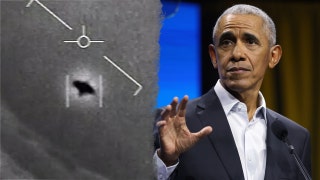Cardinal Dolan on monument controversy: Chipping away at memory, tradition is perilous
Archbishop of New York Timothy Cardinal Dolan says erasing the past instead of learning from it is 'very dangerous' on 'Bill Hemmer Reports.'
Timothy Cardinal Dolan, the Roman Catholic archbishop of New York, told "Bill Hemmer Reports" Tuesday that the desire to take down monuments and statues honoring controversial figures from history is "dangerous."
"As Catholics, like our Jewish neighbors, memory and tradition are very, very important," Dolan told host Bill Hemmer. "It's the vehicle of God's revelation ... To do anything to chip away at that tradition is perilous to the human project.
"And secondly, I'm coming at this as an American historian who knows the old quote that those who are not familiar with the past are -- guess what? -- bound to repeat the mistakes."
TRUMP SIGNS EXECUTIVE ORDER TO PROTECT AMERICAN MONUMENTS, MEMORIALS AND STATUES
Dolan went on to say that some of the ways "we remember the past and learn from it [are] statues, monuments, dedicated buildings, books and all of these. Now we're under the gun.
"We're into book burning," the cardinal added. "We're into a cultural revolution like Mao tried to do in China. We're trying to cleanse and erase the past and that is very dangerous ... The experts tell us if we're going to have an enlightened, civilized society, we need a memory and we need dreams ... We're not going to have any dreams left if we erase the memory."
In the weeks following the death of George Floyd in Minneapolis police custody last month, some demonstrations have included the tearing down of Confederate monuments and other figures.
President Trump has adamantly opposed toppling any monuments, recently signing an executive order to protect them and punish offenders with prison time.
CLICK HERE FOR THE FOX NEWS APP
"If literature that depicts prejudice, or words or scenes that are today rightly abhorred, is to be banned, I don’t know if even the Bible can survive," Dolan wrote in the Wall Street Journal this weekend. "If we only honor perfect, saintly people of the past, I guess I’m left with only the cross. And some people would ban that."
Hemmer asked Dolan what the right approach would be in handling such controversial monuments.
"The right approach is to remember," the cardinal replied. "The right approach is to acknowledge with realism and honesty and, yes, sometimes contrition about what went on in the past."









































